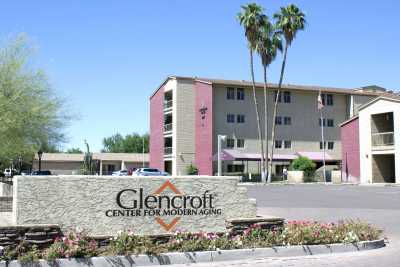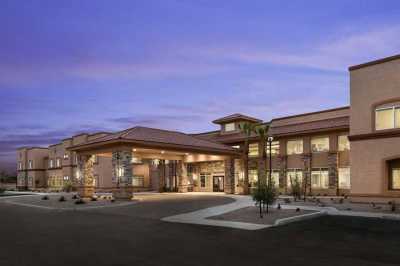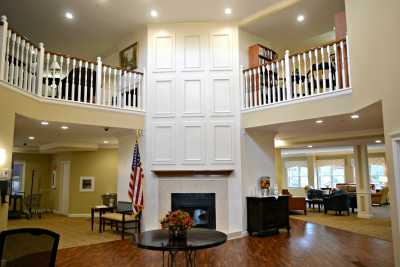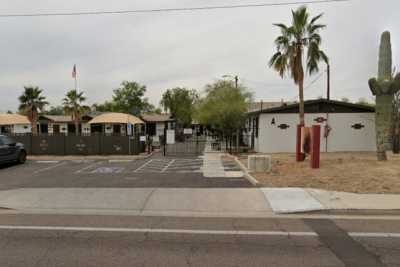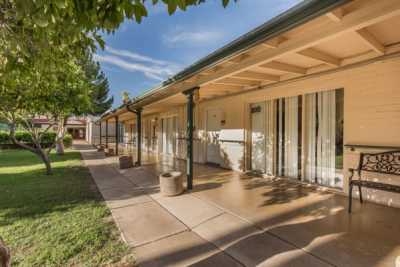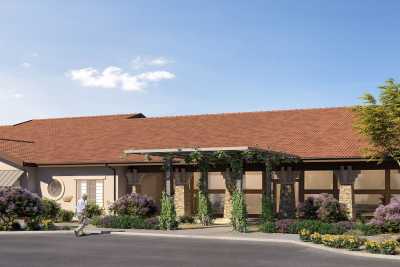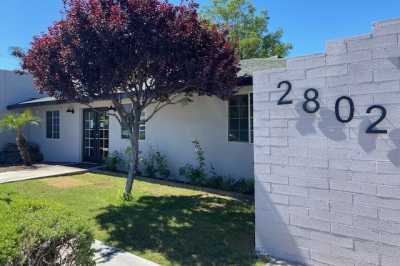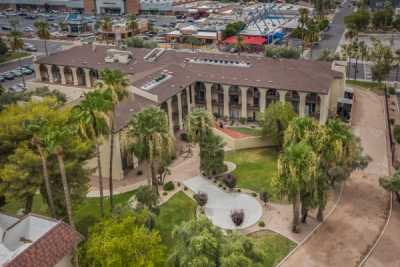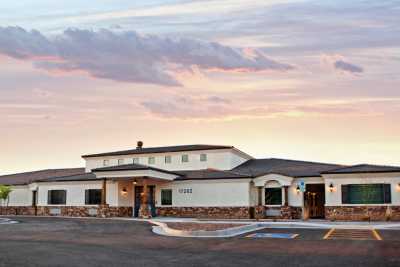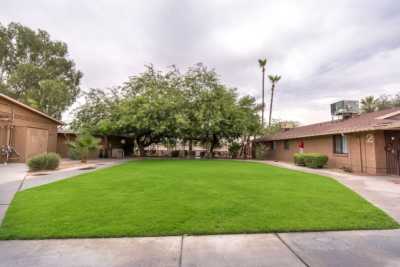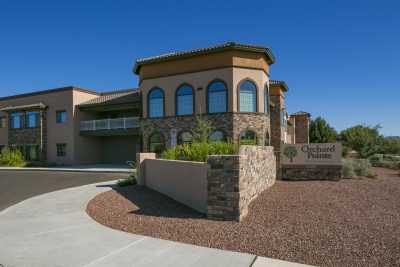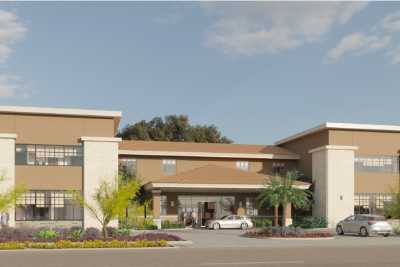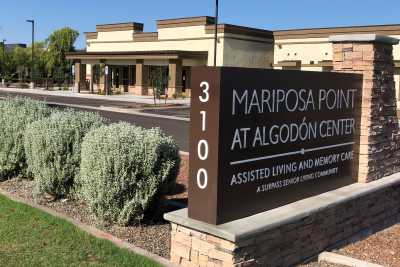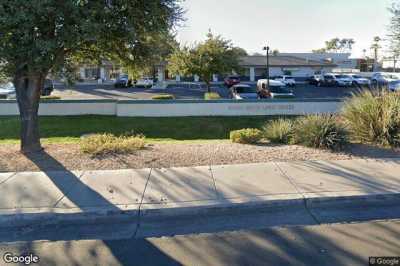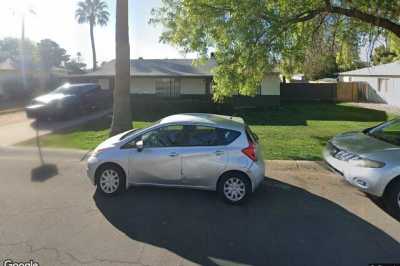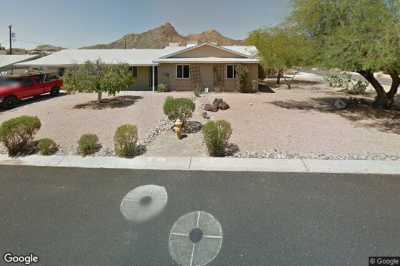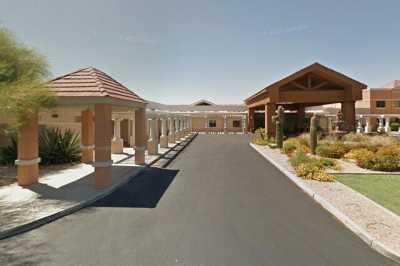
10 Best Memory Care Facilities in Phoenix, AZ for 2023
Memory care facilities in Phoenix, Arizona, deliver extraordinary care to local seniors while also attracting seniors from other states. In the 1990s, Arizona became the first state to implement an Alzheimer’s task force and has since become a leader in combating Alzheimer’s disease and other kinds of dementia. As a result, local memory care communities have great nurse-to-resident ratios and cutting-edge methods for improving the quality of life for people with memory loss.
Arizona has been an affordable retirement haven for a long time, and Phoenix is the state’s senior living epicenter. Take the sheer number of senior living options in the Phoenix metro as evidence. In Phoenix, A Place for Mom partners with 59 senior living communities that provide memory care. Compared to other similarly sized cities like Austin, Texas, or Charlotte, North Carolina, Phoenix has an exceptionally high number of memory care communities. That means seniors with dementia there have options, as memory care facilities in Phoenix come in all shapes and sizes.
Memory care is considered a type of assisted living. This means that most communities offer both assisted living and memory care services for people with memory loss. Some memory care facilities even have access to on-site skilled nursing care services, meaning your loved one will never have to move in the event of illness or injury. Whether your loved one wants a large community with luxury amenities or a more intimate board and care home in a quiet residential area, they can find their preferred living environment in Phoenix.
This guide is intended to help you make a compassionate and informed decision for your loved one with memory loss. In it, we detail information about Phoenix’s memory care communities. We include cost data, how people pay, and helpful local senior programs. We also explain how memory care facilities are regulated in Phoenix, so you can be sure your loved one enjoys a great quality of life. And we include a deep dive into what living in a memory care community in Phoenix is really like, along with some fun extras, like local senior-friendly activities.
Phoenix Memory Care Facilities | 1210 Reviews
The housekeeping staff and maintenance staff are so kind and helpful. Food service is great and if you want they will deliver to your apartment door. This is the kind of place I would want to live at when I...
The staff has been very friendly and engaging with the residents to encourage them to participate in the activities. The kitchen staff does their best to accommodate any dietary needs and preferences. Very...
I would recommend to others. Also, management and staff are dedicated to compassionate care and proactively communicate well with family.Very earnest qualified management and support staff are very much...
This is a beautiful Memory Care facility! I placed my Mom here in November and have no regrets. I searched alot of places and this one is by far the best. Clean place, alot of caring staff, Daniel the...
First visit with my nephew there as a resident. His attitude was so much better than the last place he was. I BELIEVE IT IS DO TO THE ACTIVITY Director and all the staff back there. All so caring! Great...
After a tour it seemed nice, clean, with helpful staff. The overall facility is very nice and clean. But the memory care wing is older and not as nice.
He seems to be doing pretty well. I know he has had some difficulties adjusting initially, but things are working out pretty well so far. I just left him not too long ago and he was sitting in the dining...
I've lived here for 4 months now. The facility is always clean and the staff is very friendly. I thought the facility came furnished and it didn't but the maintenance crew helped furnish my apartment. ...
We moved my father from another memory care facility to Shadow Mountain this past spring. The staff and facilities are the best I have ever encountered!! The director cares for each resident as though they...
Our free advisors can help
- Compare local facilities
- Determine care type
- Schedule tours
- Evaluate pricing
Great place and take very good care of our father. Great food and staff and outstanding price for our father that does not have a lot of money. Very clean and communicates with us very well if any issues...
Hi! I have lived here for almost 4 years and I am 73 yo. I don't walk much anymore due to car and truck accidents over the years. Thank goodness I don't have to walk here. With the old Director Team we did...
The Deer Valley Senior Living community is very clean and the staff members are very responsive, based on our experience so far we would recommend them to other families
My dad moved to the BeeHive from another facility in Phoenix in January 2020. The difference in care and caring was night and day! [name removed] the owner is personally involved and strives to make sure...
On [date removed] My wife and I were given the seemingly impossible task of finding a place for dad. We were lost at sea! [name removed] became our guiding light and heroically stepped up and showed us how...
Some of the lower ratings were patient fault. Patient did not choose to participate in activities and had poor appetite. Also my friend was only a resident for a few months and then required transfer to...
They have been wonderful to work with, and we are very happy with our decision to move our family members into The Retreat at Alameda.
When you walk in to the community it has a great overall atmosphere, there is a lot of nice décor and it is clean. The staff members are very friendly and our mother liked it right away.
Everything is going well for my husband and I here at this community. It is a good looking community. The staff have kind and helpful. There are many activities for us to choose from. The food is nice, we...
Dad is here currently and things have been good. Everyone seems pretty nice and he gets along well with the other residents. The staff seems to be able to answer any questions that I have and they take good...
Our methodology
How we rank order the Phoenix community options above
We developed a proprietary recommendation system that orders Phoenix community options based on factors we know are important to seniors and their families:
- Proximity to your search location
- Availability of recent, high-quality reviews
- The amount of detailed community information available
Where we source our information
14,000+ communities
We collect proprietary data from our network of 14,000+ senior living communities in the U.S., with regular refreshes of data and information
350,000+ reviews
We have 387,000+ reviews from senior living residents and family members that provide first-hand accounts about senior living communities
- Costs of memory care in the Phoenix area
- What families are saying about memory care in Phoenix
- How people pay for memory care in Phoenix
- Understand Arizona laws and regulations for memory care facilities
- Memory care in Phoenix is affordable and high-quality
- Phoenix memory care services and amenities
- Explore senior care with confidence
- Unfamiliar with Phoenix? Highlights for seniors
- Transportation for seniors in Phoenix
- Senior activities in Phoenix
Costs of memory care in the Phoenix area
In Phoenix, memory care costs an average of $4,415 a month according to A Place for Mom’s 2022 proprietary data.[01] This number represents the total costs of memory care, including rent, meals, care services, and extra fees at our partner facilities. Memory care is more expensive than general assisted living because it requires 24-hour awake staff and specialized dementia caregivers.
While memory care is a more expensive care type, the cost of memory care in Phoenix is still below other similarly sized cities, like Denver. Arizona is also an attractive state for seniors because it doesn’t tax Social Security benefits and has reasonably low income tax rates, at 2.55% and 2.98%.
The figures in the chart below represent the starting costs for Phoenix memory care communities for rent and meals, before additional fees for care services and amenities. The chart is meant to provide a comparison between Phoenix memory care costs and costs in nearby cities.
Average monthly cost of Memory Care in Phoenix, AZ vs. nearby cities
Average monthly cost of Memory Care in Phoenix, AZ vs. the state and national average
Average monthly cost of Memory Care in Phoenix vs. other types of senior living
Median monthly costs of Memory Care in Phoenix, AZ by room type
Average cost of Memory Care in Phoenix over time
What families are saying about memory care in Phoenix
Recent reviews for memory care in Phoenix
Brookdale North Mesa
Vineyard Park of Surprise
The Auberge at Scottsdale
Phoenix review score based on 335 family reviews
This proprietary review score is based on 335 reviews of 123 Phoenix memory care communities. All reviews were submitted in the past two years by verified community residents and family members.Phoenix review score compared against nearby cities
Review subcategories for Phoenix memory care
When memory care residents and family members submit a review on our site, they rate each community on categories such as cleanliness, activities, meals, and more. The chart below is based on 335 reviews of 123 Phoenix memory care communities. This chart helps you compare Phoenix resident and family memory care satisfaction rates against national averages. Use it to assess your needs and develop criteria for your own search. If you know that one of these categories is important to you or your loved one, our senior living advisors can help you find communities to match your needs.How people pay for memory care in Phoenix
Planning before your loved one needs memory care can help keep it affordable. Many families try to pay for their memory care using health insurance, because dementia is a medical condition. However, these benefits will only cover some costs associated with memory care, and families usually need to cover the rest with private funds.
This section includes resources to help you use private savings and other financial assets to cover memory care. It also includes explanations of how to use public funds, like veterans benefits, Medicaid, and Medicare to cover memory care costs.
A retirement account is the most common way people fund their senior living or memory care costs, but there are other smart ways to help your financial assets go further. Selling a house or using a reverse mortgage, utilizing a health savings account (HSA), or cashing out your life insurance are some other common methods to pay for memory care.
Living in Arizona comes with its own financial benefits, as well. Arizona doesn’t tax Social Security benefits and has relatively low income tax rates at 2.55% and 2.98%. Many seniors find they save money just by living in Arizona.
Discover if any of these private pay methods can help you cover your bases.
Aging veterans in Phoenix can access two different types of financial assistance through the U.S. Department of Veterans Affairs: the VA pension and the Aid and Attendance benefit.
Can I use veterans benefits to pay for memory care in Phoenix?
The VA pension and the Aid and Attendance benefit can both be used to pay for a veteran’s memory care. Most veterans need some help when applying for these benefits, and in Phoenix, veterans can go through Arizona’s Virtual Benefits Counselors (VBCs). These counselors are experts in applying for benefits through the VA and will walk you through the entire application process. They can even help you appeal denied claims. Veterans living in Phoenix can set up a virtual appointment by calling the VBC helpline at 602-535-1215.
How can I use the VA pension to pay for memory care in Phoenix?
The VA pension is a monthly financial allowance. The amount varies depending on how long the veteran served and their highest salary while employed in the military. The pension is simply money that can be used to pay for anything the veteran needs, including memory care. But because memory care is expensive, a VA pension will not cover the entire cost. Eligible veterans must meet all of the following criteria to receive the VA pension:
- Be 65+ or disabled
- Serve at least 90 days of active duty and one day during wartime
- Meet the low-income threshold
- Have an honorable discharge
How can I use the Aid and Attendance benefit to pay for memory care in Phoenix?
The Aid and Attendance benefit is money added to the VA pension, so veterans must first receive the VA pension and be enrolled in VA health care. This benefit is for veterans living with a disability. Like the VA pension, veterans can use the Aid and Attendance benefit to pay for anything that improves their quality of life.
The amount differs for each person, but for some the Aid and Attendance benefit may cover a large portion of their memory care costs. Veterans are eligible for the Aid and Attendance benefit if they meet at least one of the following criteria:
- Need assistance for some activities of daily living
- Already reside in a long-term care facility
- Have very limited eyesight
- Are bedbound before receiving proper care
Is there a VA-run memory care community in Phoenix?
Yes, the Arizona State Veteran Home Phoenix provides memory care services to local veterans. This 200-bed community is technically a skilled nursing facility. However, seniors with mid- to late-stage dementia are considered in need of skilled nursing care in Arizona and are eligible to live in this facility.
In fact, 25 of their beds are reserved for memory care. This community is a secure, inviting space. While there is no guarantee of a bed, seniors or their families can begin the application process by calling an admission coordinator at 602-248-1594.
Phoenix veterans advocacy and counseling
Arizona veterans can get benefits counseling through the Arizona Department of Veterans’ Services. The department employs Veteran Benefits Counselors (VBC) who can walk you through the application process. VBCs can even help appeal a decision and represent you at VA hearings.
Phoenix also has three different chapters of Veterans of Foreign Wars (VFW) and one local Disabled American Veterans (DAV) office. The DAV is a charitable organization that provides free benefits counseling to all veterans and outreach programs, especially for disabled veterans. The DAV office is located within the VA Regional office in Phoenix. These local organizations can help veterans apply for benefits and can even help contest denied claims. Phoenix’s VFW chapters also offer social and volunteering events.
Applying for VA benefits can be a long and confusing process, even for veterans who are eligible. Most veterans need assistance applying for their benefits, and these resources can help you make sure you’re on the right track.
73,225 veterans live in Phoenix, according to the U.S. Census Bureau.
About 22% percent of Phoenix veterans are 75+, according to the U.S. Census Bureau.
Resources for Phoenix veterans
Arizona Department of Veterans’ Services
3839 N. Third St.
Phoenix, AZ 85012
Phone: 602-255-3373
Phoenix Vet Center
4020 N. 20th St.
Phoenix, AZ 85016
Phone: 602-640-2981
Arizona State Veteran Home Phoenix
4141 N. Silvestre Herrera Way
Phoenix, AZ 85012
Phone: 602-248-1550
Admissions officer: 602-248-1594
Volunteer coordinator: btashner@azdvs.gov
Veterans of Foreign Wars (VFW) Post 3715
4008 W. McDowell Road
Phoenix, AZ 85009
Phone: 602-269-8005
Email: vfw3715@gmail.com
Veterans of Foreign Wars (VFW) Post 720
4853 E. Thomas Road
Phoenix, AZ 85018
Phone: 602-620-6418
Email: 720vfw@gmail.com
Veterans of Foreign Wars (VFW) Post 9400
804 E. Purdue Ave.
Phoenix, AZ 85020
Phone: 602-678-2726
Email: vfw9400az@yahoo.com
Medicaid is a federally-regulated health insurance plan run by state governments for low-income individuals. Arizona’s Medicaid Program is called the Arizona Health Care Cost Containment System (AHCCCS). Every state runs its Medicaid program a bit differently, and Arizona is no exception. In Arizona, recipients can enroll in one of two different Medicaid programs: AHCCCS or the sub-program called Arizona Long-Term Care Systems (ALTCS, pronounced All-tecs).
Regardless of which one you enroll in, you’ll likely benefit from Arizona’s uniquely generous Medicaid program. Compared to other states, Arizona’s Medicaid covers more services for more people, meaning you’re likely to get the coverage you need.
Will AHCCCS or ALTCS cover memory care?
While AHCCCS will not cover memory care, ALTCS may. Many Arizona residents aren’t sure which Medicaid program to apply for. While AHCCCS is the most commonly used Medicaid program in Arizona, it may not be the best option for seniors in memory care. In Arizona, seniors in memory care should apply for ALTCS and only apply for AHCCCS if they’re deemed ineligible for ALTCS during the application process.
Income limits: AHCCCS vs. ALTCS
The first difference between AHCCCS and ALTCS is the income limit. For AHCCCS, the monthly income limit is $1,133 for a single person and $1,526 for a couple. For ALTCS, the income limit is much higher at $2,742 a month for an individual.
Additionally, seniors who make more than the income limit may still qualify for ALTCS if they set up a Special Treatment Trust. To do this, talk with the person helping you through the application process. You may also need to work with a lawyer to set up a Special Treatment Trust, but it can save you a considerable amount of time and money in the long run.
Eligibility: AHCCCS vs. ALTCS
The second difference between the two Arizona Medicaid programs is who’s eligible. AHCCCS is for anyone who meets the income requirements. ALTCS, on the other hand, is for seniors and people with disabilities living in long-term care communities. Besides being below the income limit, seniors applying for ALTCS must be 65 years or older and require skilled nursing care.
A representative from the AHCCCS determines if the senior requires skilled nursing care or not. It’s important to note that the AHCCCS often defines elements of memory care (and even assisted living care) as “skilled nursing care.” This means even if a senior resides in a memory care community and only needs help with mobility and supervision, they may still be eligible for ALTCS.
Coverage: AHCCCS vs. ALTCS
AHCCCS and ALTCS differ in their coverage, as well. AHCCCS functions just like any other health insurance by covering only costs related to health care. Common services covered by both AHCCCS and ALTCS are the following:
- Prescriptions (unless they’re covered by Medicare)
- Emergency room care
- Hospital care
- Immunizations and injections
- Dental, vision, and hearing care
- Labs and X-Rays
ALTCS covers much more than just health services. It covers rent, meals, and care services for eligible people living in long-term care facilities, including memory care communities. However, seniors enrolled in ALTCS may still pay some amount of the costs associated with their care. This is called Share of Cost, and the actual amount varies for each person depending on their monthly income and their total financial assets.
Because eligibility is determined on a case-by-case basis, it’s in a senior’s best interest to first apply to ALTCS even if they’re unsure if they meet the criteria. This is because ALTCS is considerably more generous than AHCCCS.
Below are resources to help guide you through the Medicaid application process. Applying for benefits doesn’t guarantee you’ll receive them, but these resources should help you navigate the process.
Phoenix resident Medicare resources
Arizona Health Care Cost Containment System (AHCCCS)
801 E. Jefferson St.
Phoenix, AZ 85034
Phone: 602-417-4000
Arizona Long Term Care Systems (ALTCS)
801 E. Jefferson St.
Phoenix, AZ 85034
Phone: 888-621-6880
Email: altcsregistration@azahcccs.gov
How to file an application for ALTCS
Request an application for ALTCS
Phoenix Medicaid office
4635 S. Central Avenue
Phoenix, AZ 85040
Phone: 602-771-0700
Medicare is a federal health care program that covers some health care costs for individuals 65 and older. Medicare doesn’t cover rent, meals, or most care services in memory care communities in Phoenix. This is because it’s designed to cover only short-term and medically necessary health care expenses. Eligible individuals are any Americans who are 65 or older, have paid Medicare taxes, or are married to someone who has paid Medicare taxes.
Is memory care a “short-term” medical expense according to Medicare?
Memory care is not a short-term expense according to Medicare. “Short-term” means that Medicare will only pay for expenses that do not last longer than 100 days. Examples of short-term health care costs are the cost of a knee replacement surgery, including a hospital stay and a stay in a rehabilitation center.
Specifically, Medicare pays 100% of the costs for any medically necessary health care service for the first 20 days, some of the costs from days 21-100, and none of the costs past day 100. Additionally, from days 21-100, seniors pay a daily $200 copay. Because stays in memory care communities usually exceed 100 days, Medicare won’t cover memory care.
Is memory care “medically necessary” according to Medicare?
Memory care is not medical care, so Medicare won’t cover it. However, it will help with medical care expenses for people living in memory care communities. “Medically necessary” usually means that a doctor has stated that a procedure, medication, or rehabilitation is necessary for the health and well-being of the patient.
This does not include most elective procedures or items, like dentures or hearing aids, but it can include appendectomies and other urgent procedures. There are so many different medical procedures and medications, and some may be considered medically necessary for one patient and not for another.
To see if your medication or procedure is deemed “medically necessary” by Medicare, you can search directly for them on the Medicare coverage portal which is in the resources below. You can also dial 211 to speak to your local Social Security office regarding questions about Medicare. Nothing is guaranteed, however, and your doctor and Medicare will ultimately decide if your procedure or medication is necessary.
Can I get help paying my Medicare premiums?
Yes, you can get help paying for your Medicare premiums through a program in the Arizona Health Care Cost Containment System (AHCCCS) called Help with Paying Medicare Costs Only. To be eligible for this program, seniors cannot make more than $1,133 a month as a single person and $1,526 a month as a couple. You can apply for this program using the link in the resources below.
Can I get help applying for or using Medicare benefits?
In Arizona, seniors can access benefits counseling at no cost through the State Health Insurance Assistance Program (SHIP). SHIP can help you navigate the application process and can help answer your specific questions about coverage. It’s not affiliated with the insurance industry and is entirely confidential.
You can dial the SHIP Assistance Helpline to access a benefits counselor. Additionally, the Arizona ombudsman can take any complaints you may have about your Medicare coverage (or lack of coverage). The ombudsman can help resolve your problems and act as a mediator between you and the Medicare program.
Phoenix resident Medicare resources
Social Security Administration — Phoenix office
250 N. 7th Ave.
Phoenix, AZ 85007
Phone: 800-772-1213
Understand Arizona laws and regulations for memory care facilities
The Arizona state government considers memory care communities to be a type of assisted living community, so they’re regulated and licensed in the same way. The Arizona Department of Health Services (AZDHS) — Division of Licensing Services regulates assisted living communities that offer memory care services. Facilities go through an initial inspection and approval process and are then given a license to operate for one year.
Each year, communities go through an unannounced inspection. You can find all inspection results on the AZ Care Check database. Search by provider name, address, county, or zip code to find a list of local assisted living communities. Because memory care is considered a part of assisted living, the system doesn’t appear to be designed to let you search for memory care communities specifically.
In Phoenix, memory care is often housed in larger assisted living communities, often with 20 or more residents. However, Phoenix has an exceptionally high number of smaller board and care homes with less than 10 residents. And many of these residential care homes accept residents with memory loss. Though these care homes are smaller in size, they’re licensed and regulated in the same way as larger assisted living communities.
How are memory care facilities regulated in Phoenix, Arizona?
Like assisted living communities, memory care facilities in Phoenix must meet the following state regulations:
- Facilities must be kept clean and tidy.
- Facilities must provide necessary utilities, like warm and cold water, air conditioning, and heating.
- Facilities must have a written care plan for all residents, including up-to-date health concerns and all care services the residents receive.
- Facilities should supply meals that accommodate residents’ dietary needs.
Assisted living communities that offer memory care must also have egress controls, like monitoring of entrances and exits. However, they must also provide secure and supervised outdoor areas for residents to safely wander.
What rights do residents have in Phoenix’s memory care communities?
The Arizona Department of Health Services outlines residents’ rights in memory care communities in Article 8. These rights apply to residents and some may also apply to family members who act as their loved one’s medical power of attorney. In Phoenix’s memory care communities, residents are entitled to the following rights, among others:
- Residents must be fully informed of all care services they will receive.
- Residents must be able to choose their own health care providers.
- Residents must be given a reasonable amount of privacy.
- Residents must be able to submit a complaint without retaliation.
- Residents must be fully informed of all changes to the cost of their care, rent, or meals.
What are the training requirements in Phoenix’s memory care communities?
In Phoenix, managers of assisted living communities that provide memory care must have eight hours of memory care-specific training prior to operating a facility. There are no other state requirements for other memory care staff members. However, it’s very likely that all caregivers providing memory care in Phoenix undergo some memory care training. Make sure to inquire at prospective memory care communities whether or not their care staff has had specialized memory care training.
Communities have the right to choose their own memory care training programs, much like how schools can choose their own curriculum. Almost every single partnering memory care community in Phoenix has an established memory care program in place that requires ongoing staff training, special protocols and activities, and design features.
Arizona Department of Health contact information
Arizona Department of Health Services (AZDHS)
150 N. 18th Ave.
Phoenix, Arizona 85007
Phone: 602-542-1025
COVID-19 regulations for Phoenix memory care facilities
All memory care facilities in Phoenix follow guidelines set forth in the Arizona Together program to prevent COVID-19. While guidelines change, Arizona has had a consistently hands-off approach to COVID-19 and doesn’t require any vaccinations, testing, or masking in assisted living communities.
That said, the Arizona Together program does recommend that residents and staff members of memory care facilities become vaccinated against COVID-19 and mask if exposed. It also encourages communities to have a COVID-19 wing to keep ill residents from infecting others.
Maricopa County publishes current COVID-19 data, including COVID-19 hospital admissions and infection rates in long-term care communities. You can also find a map of Maricopa County with COVID-19 levels for each community.

Vaccinations. Residents and staff members of Phoenix memory care communities are encouraged to become fully vaccinated against COVID-19.

Masking. Sick or exposed residents are encouraged to mask, and while not required, visitors can be asked to mask by individual memory care communities.
Memory care in Phoenix is affordable and high-quality
Phoenix is a one-stop-shop for seniors in need of memory care. For decades, Phoenix has been the place to retire in the United States, and interest in the happy Valley of the Sun has continued to grow. Warm weather, a lower cost of living, and a generous state Medicaid plan are the main contributors to Phoenix’s senior appeal. But seniors with memory loss also benefit from Arizona’s persistent focus on combating Alzheimer’s disease and other kinds of dementia.
By 2025, the Arizona Alzheimer’s Association estimates that 33% of people over 85 will have Alzheimer’s disease.[02] In the 1990s, because of their large senior population, Arizona became one of the first states to create a plan to educate the public and bolster support for memory care. Because of this, Phoenix has a higher concentration of quality and affordable memory care options than most similarly sized U.S. cities.
In the city of Phoenix, most memory care communities are smaller board and care homes that offer both assisted living and memory care. But in nearby suburbs like Scottsdale, Glendale, and Peoria, larger senior living communities with memory care wings are the norm. Read on to learn more about your memory care options in Phoenix.
Smaller board and care homes for memory care in Phoenix
Phoenix has a uniquely high number of board and care homes. Board and care homes are senior living communities set within converted residential houses. They usually have fewer than seven residents, and caretakers often live in the home with the residents. While board and care homes offer a homier experience than larger assisted living communities, they’re regulated and licensed in exactly the same way.
Within the Phoenix metro, the most common setting for memory care is actually in a board and care home. Of Phoenix’s 121 partnering assisted living communities, 84 are board and care homes, and almost all of these offer memory care.[01]
Most board and care home residents share a room with one other resident and eat meals in a communal dining room. Leisure activities tend to take place in a living room or in a private backyard. Because board and care homes are smaller and only offer the amenities typical of a residential home, they tend to be much cheaper than memory care options in larger assisted living complexes.
Benefits of memory care in board and care homes
There are some real benefits to receiving memory care in a residential care home. For one, being in an actual home offers residents a sense of familiarity and nostalgic comfort that would be harder to recreate in a larger facility. What’s more, caregivers in a residential care home can get to know the residents more personally, as they tend to live with the residents. Families, too, may enjoy a closer relationship with their loved one’s caregiver at a smaller residence.
However, board and care homes can’t provide the same level of amenities as larger senior living facilities. They may lack access to things like large game rooms, expansive outdoor spaces, and on-site services like beauticians. That said, many families still find Phoenix’s board and care homes to be an ideal setting for their loved ones due to their more relaxed and homey nature.
Large memory care communities in Phoenix’s suburbs
In the nearby Phoenix suburbs of Scottsdale, Glendale, and Peoria, the memory care landscape changes dramatically. The most common setting of memory care tends to be in large, luxurious assisted living communities. These large complexes often have more than 100 residents and are set on sprawling grounds with beautiful views of nearby desert bluffs. Many of these communities are newer and include more than one senior living care type on the same campus.
In these communities, memory care often takes place in its own wing. These memory care wings are often designed to resemble neighborhoods and have circular floorplans to encourage independence. Seniors can either share a room or use a private room, depending on how much they want to spend. Residents enjoy restaurant-style dining in a communal dining room and an abundance of common areas for socializing.
Benefits of larger memory care communities
These larger communities almost always have an official memory care program, much like a school curriculum. These programs include staff training for how to speak to people with memory loss, how to use redirection, and how to de-escalate certain dementia behaviors. Suggested exercise programs and activities mimic residents’ previous careers or hobbies.
Because of their extensive amenities, these larger memory care wings are much more expensive than Phoenix’s board and care homes. However, memory care communities are still cheaper than similar options in other popular retirement destinations.
Phoenix memory care services and amenities
Availability of select care services in Phoenix memory care
Availability of select dementia care services in Phoenix memory care
Availability of select dietary accommodations in Phoenix memory care
Availability of select dining options in Phoenix memory care
Availability of select programs and activities in Phoenix memory care
Explore senior care with confidence
Know where to start.
Identify the right care for your loved one with our free assessment.

See what you can afford.
Understand cost and payment for long-term care based on your loved one's needs.

Find top facilities for you.
Free, personalized guidance from our Senior Living Advisors can help you narrow your search.

Tour your favorite facilities.
Our free touring checklist can help you choose the right community.
Unfamiliar with Phoenix? Highlights for seniors
Health care for seniors in Phoenix
Phoenix has a high number of excellent health care providers in the city and in the surrounding areas. Many are nationally ranked for geriatric care, and many employ experts in Alzheimer’s disease and other types of dementia.

Mayo Clinic – Phoenix
According to the U.S. News and World Report, the Mayo Clinic – Phoenix is one of the best hospitals in the nation. It is ranked No. 13 in the nation for geriatric care.
5777 E. Mayo Blvd.
Phoenix, AZ 85054
Phone: 480-342-2000

St. Joseph’s Hospital and Medical Center
St. Joseph’s Hospital and Medical Center is nationally ranked for its geriatrics care and its neurology department, which handles memory disorders.
350 W. Thomas Rd.
Phoenix, AZ 85013
Phone: 877-505-4057

Banner Alzheimer’s Institute
The Banner Health Center in Phoenix houses the city’s Alzheimer’s Institute, which offers therapeutic care and cutting-edge treatments.
901 E. Willetta St.
Phoenix, AZ 85006
Phone: 602-839-6900
Transportation for seniors in Phoenix
Most seniors in Phoenix’s memory care communities won’t need to worry about transportation because most of our local partner communities provide transportation options. However, visiting family and friends should know that Phoenix is a driving city. Like most Western cities, Phoenix is spread out (covering more square mileage than Los Angeles) and doesn’t offer robust public transportation.
For visiting friends and family, Phoenix does have a public transportation system, called the Valley Metro Transit System, or Valley Metro for short. It operates throughout the day and night and is affordable, although there may be long wait times, which can be uncomfortable in the hot summer months. Seniors can also use the Senior Center Shuttle Program for only $1 each way.
Participating seniors can also get rides to appointments and activities from the city’s local senior centers. Seniors need to schedule their rides at least 24 hours in advance. To schedule a ride, call 602-262-7379.
Senior activities in Phoenix
Staying active is one way to maintain health amidst memory loss, and Phoenix’s memory care communities take this to heart. Almost every one of our partnering memory care communities in Phoenix offers daily activities designed to stimulate the mind and body.
Common activities revolve around appreciating each individual’s unique history, like reminiscence afternoons, where seniors look through photographs or use virtual reality to walk down memory lane. Sing-alongs are also popular, as well as gentle exercises like chair yoga.
Memory Cafes
In 2020, Phoenix became the largest city in America to become an official Dementia Friendly City. Part of this initiative is the creation of the city’s Memory Cafes. A Memory Cafe is an event for people with memory loss and their caregivers to socialize and get to know one another. Staff members at the cafe help engage seniors with exciting activities while caregivers can relax.
In Phoenix, these cafes often involve music or art projects but can also include guest speakers and group activities. Phoenix’s memory cafes take place every 2nd and 4th Wednesday at 10:30 a.m. You can RSVP or direct your questions to sanja.tetaric@phoenix.gov.
AZ Creative Aging
The Arizona Commission on the Arts has created a local program called AZ Creative Aging. This developing program puts on events and classes for older Phoenix residents to try something new. The program partners with local organizations, like the Phoenix Center for the Arts, Theater Works, and the Heard Museum, to put on events and classes on a regular basis. Keep an eye on the AZ Creative Aging website to sign up for future classes.
Spas
Phoenix has a reputation as a haven for people looking for serious spa relaxation. Day spas have become almost synonymous with Phoenix’s culture. Most casinos have their own resort-level spas and hotels, and there are plenty of stand-alone spas throughout the city and suburbs as well. These spas offer you an immersive, restorative experience. And many spas are on the outskirts of town where you can soak in the serene desert landscape, margarita in hand, from a pool deck.
Outdoor activities
Phoenix is known as the Valley of the Sun, and many of the best things to do in the area revolve around being outside. Many memory care communities bring their residents to the Desert Botanical Garden, as it’s a quiet and beautiful place to experience the unique and peaceful landscape. The garden also offers multiple classes, like landscaping and botanical art. Seniors can receive a discounted admissions ticket, but you need to ask for the discount at the counter.
Golf is one of the biggest draws to Phoenix, and for good reason. Few places in the United States can offer the kind of year-round golf experiences as Phoenix. Most golf courses are well-maintained and have lovely views of the Sonoran Mountain Range. The Papago Golf Course is one of the most prestigious golf courses in the southwest, and while expensive, offers the best views of the Papago Bluffs, luxury dining, and, of course, a great game.
Sports
Phoenix has an engaged community of sports fans for its many teams. While the local teams, including the Arizona Suns, the Arizona Cardinals, and the Arizona Diamondbacks, don’t offer senior discounts for their games, it’s still a popular activity for local seniors and their families. Large sporting events may be overwhelming for some seniors in memory care if they do not have a caregiver escort. If the senior is a lifetime fan, it can be a reminiscing experience for them as long as they have the security of a friend or caregiver by their side.
Gaming
While seniors with dementia should never go to casinos unsupervised, visiting family and friends can certainly take advantage of Phoenix’s exciting gaming scene. Casinos are a big draw to the Phoenix area, and many local senior communities offer free shuttle service to local casinos. The biggest is the Talking Stick Resort, which has a luxury spa, a theater, a museum of Native American art, and one of the largest game spaces in the nation. Other casinos, like the Casino Arizona and Gila River Casino, also provide complimentary rides to and from Scottsdale.
Frequently Asked Questions
Sunrise of Scottsdale, McDowell Village and Cottages at Peoria are the top-rated Memory Care facilities near Phoenix, AZ. These Memory Care facilities received the highest rankings based on verified family reviews. See full list of communities.
The average cost of Memory Care in Phoenix is $4,740 per month. This cost may vary based on location, amenities, floorplan, level of care and other factors.
The 174 memory care facilities near you in Phoenix, Arizona typically provide housing, therapies, and care tailored to those who have Alzheimer’s or other forms of dementia. To find memory care in Phoenix, Arizona, browse our detailed listings showing photos, floor plans, amenities, activities, and reviews from real families.
Browse A Place for Mom’s listings for memory care in Phoenix, Arizona, to take a virtual tour. Our local senior living experts can arrange for a live tour of these communities as well.
The cost of memory care facilities in Phoenix, Arizona ranges from $500 to $14000. The average Memory Care cost in Phoenix, Arizona is $4,740. Prices often vary based on care provided, amenities, unit size, and more.
The cost of memory care in Phoenix, Arizona typically starts at $500. A Place for Mom’s local, expert senior living advisors can help you find affordable memory care facilities near you and offer advice on how to lower costs and pay for care with VA benefits or public payment options.
References
A Place for Mom. (2022). A Place for Mom proprietary data.
Arizona Governor’s Office on Aging. (2015, September). Arizona Alzheimer’s State Plan: A Framework for Action.
United States Census Bureau. (2021). Veteran status (S2101): Phoenix city [Data set]. American Community Survey.
United States Census Bureau. (2021). Age and sex (S0101): Phoenix city [Data set]. American Community Survey.
United States Census Bureau. (2021). Age and sex (S0101): Scottsdale city [Data set]. American Community Survey.

More questions?
Ask an A Place for Mom local advisor at no cost.
- Mesa, Arizona
- Scottsdale, Arizona
- Glendale, Arizona
- Chandler, Arizona
- Fountain Hills, Arizona
- Sun City West, Arizona
- Surprise, Arizona
- Cave Creek, Arizona
- Anthem, Arizona
- Sun City, Arizona
- Litchfield Park, Arizona
- Peoria, Arizona
- Youngtown, Arizona
- Deer Valley, Arizona
- Paradise Valley, Arizona
- Ahwatukee, Arizona
- Avondale, Arizona
- Carefree, Arizona
- Cottonwood Ranch, Arizona
- Rancho San Carlos, Arizona


